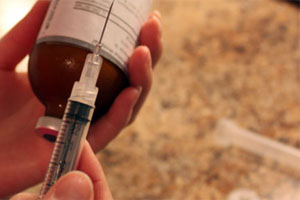US consumers confused about antibiotic resistance

US consumers are confused about the causes of antibiotic resistance and the use of antibiotics in livestock and poultry production, a new survey by Harris Poll for the American Meat Institute (AMI) reveals.
When asked “According to the CDC, which of the following is the greatest contributing factor to human antibiotic resistance,” only four in ten Americans (41%) correctly answered “health professionals over-prescribing to people.”
Eighteen percent thought use of antibiotics in livestock production was the number one contributing factor according to the CDC. Seven percent thought the CDC found antimicrobial hand sanitisers to be the biggest factor; 5% thought the answer was drinking water and 28% said they were unsure.
During a September 2013 press conference to release a report on antibiotics, CDC director Thomas Frieden, MD, said, “Right now, the most acute problem is in hospitals. And the most resistant organisms in hospitals are emerging in those settings because of poor antimicrobial stewardship among humans.” In fact, he said that half of all antibiotic prescriptions given to humans are unnecessary.
CDC also said that it is important to use good stewardship in administering antibiotics during livestock and poultry production and that antibiotic use for animal growth promotion should be phased out, an effort that is already under way at the request of the Food and Drug Administration and a move that the American Meat Institute supports.
Survey data also reflect confusion around the issue of antibiotic residues. Four in ten consumers (39%) think that unsafe levels of antibiotics are commonly present in the meat and poultry products found at the grocery store, though government data show that violative antibiotic residues in meat and poultry are virtually non-existent. In 2011, USDA’s Food Safety and Inspection Service screened meat and poultry for 128 chemicals, and 99% of the tested carcasses were free of all of them.
In addition, AMI has released a new, referenced and reviewed brochure called Antibiotics in Livestock & Poultry Production: Sort Fact From Fiction.













